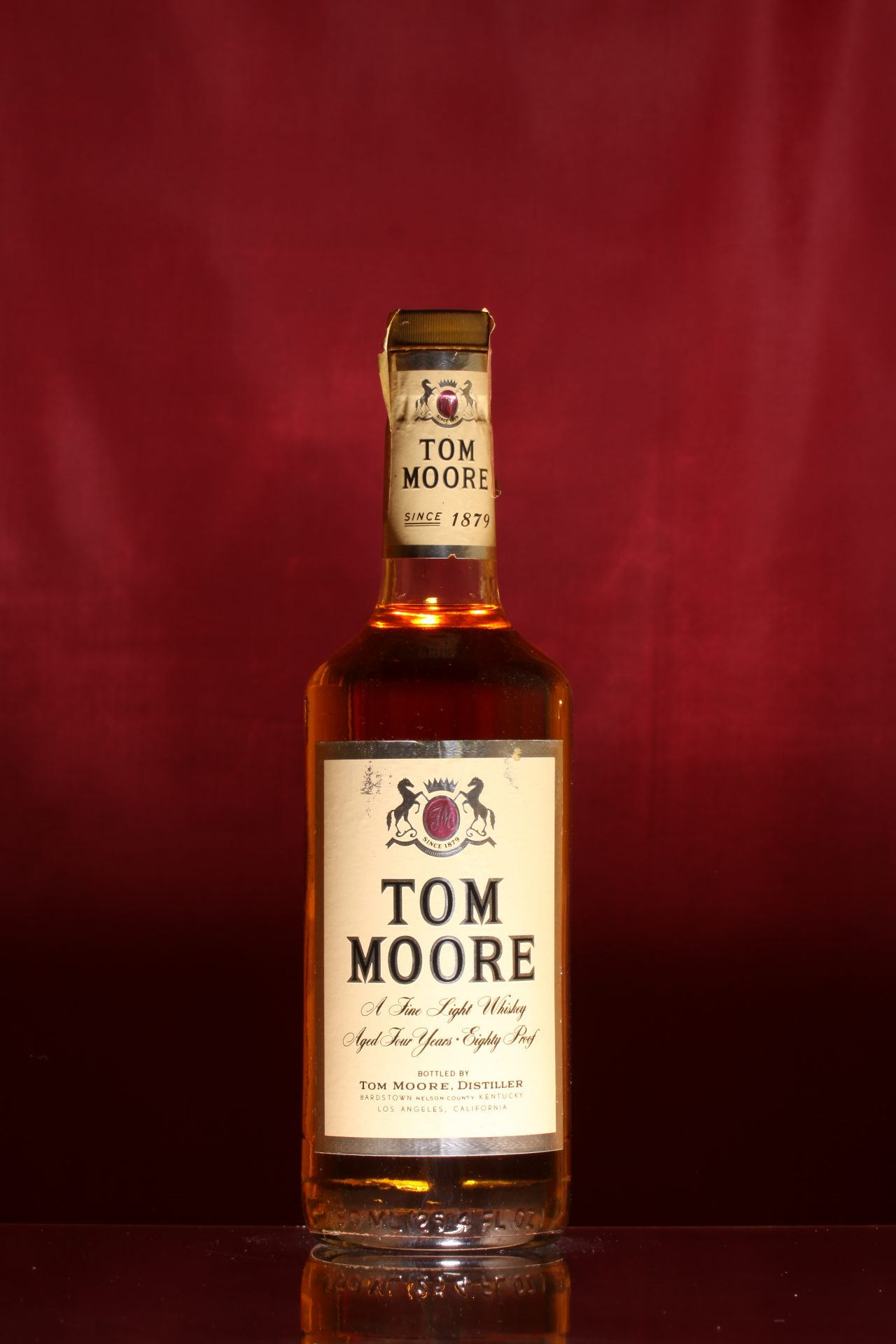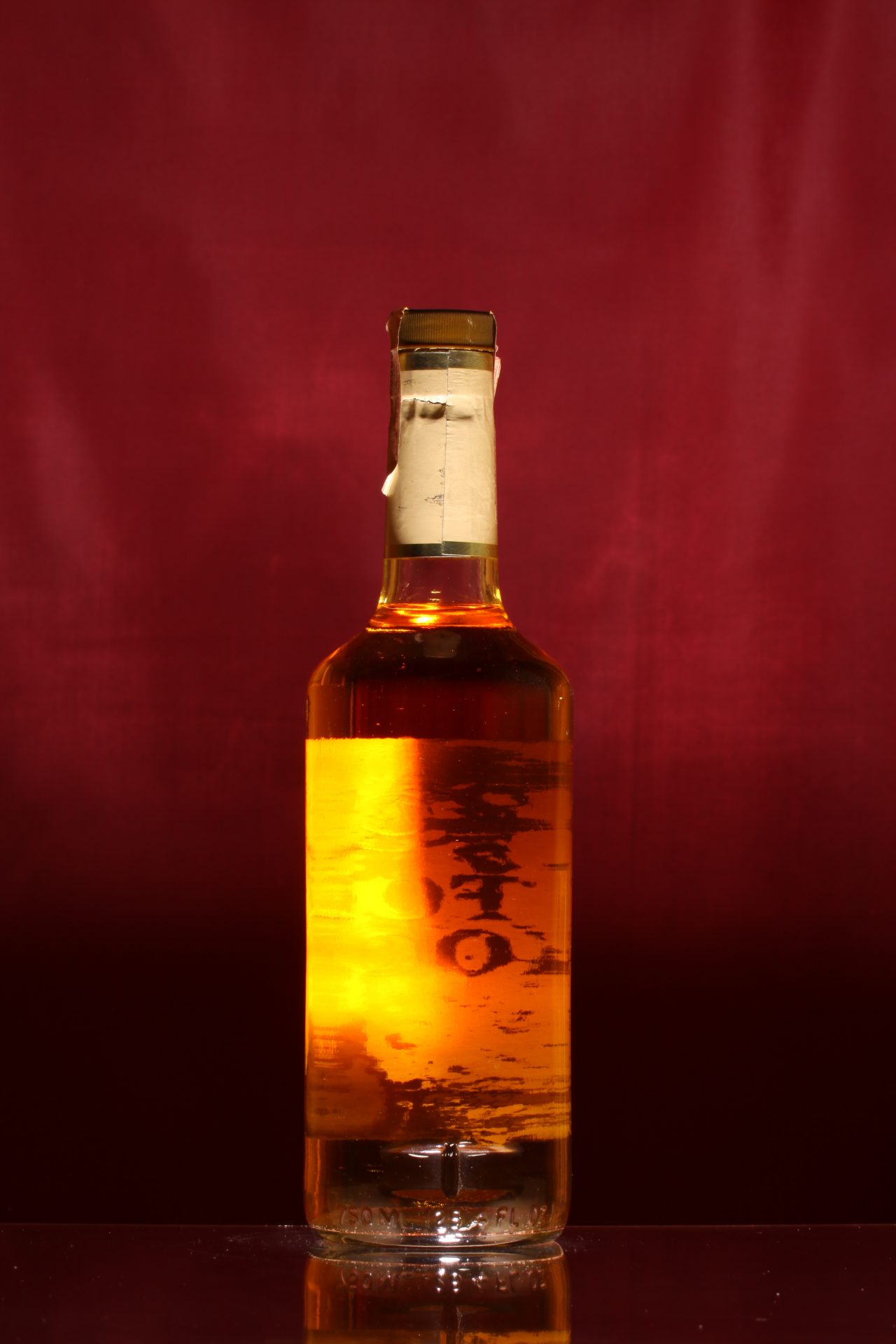TOM MOORE
| Type: | WHISKEY BLENDED |
| Flavor: | Blended |
| Made From: | Whiskey & Neutral Spirits |
| Produced By: | TOM MOORE, DISTILLER |
| Origin: | Bardstown, Ky. U.S.A. |
| Proof: | 80 |
| Age: | 4 |
| Importer: | Made In The U.S.A. |
| Location: | Bardstown, Ky. |
The Barton distillery, also known as the Tom Moore distillery, is kind of an enigma. Most people don’t know it exists. They market only one brand outside of Kentucky, although that one brand is certainly familiar to bourbon aficionados — 1792 Ridgemont Reserve, which was first introduced in 2002.
The “1792” is a celebration of the fact that Kentucky, until then a large county in the Commonwealth of Virginia, separated and became the 15th United State (actually also a commonwealth) in that year. The rest of the bourbon’s name, Ridgemont Reserve, also has a story, but we won’t go into it here. It is a funny story to some, although perhaps not so funny to others.
Regardless of its name though, many who enjoy this bourbon believe it to be a specialty item, the sole product of a distillery dedicated to that particular brand, as is true of Woodford Reserve or Maker’s Mark. Others think of it as a fine example of bourbon whiskey produced by a bottler who does not directly distill, but carefully selects the finest examples for his brand from existing distillers. Examples might be brands such as Jefferson Reserve, Noah’s Mill, Corner Creek, and, at one time, Wild Turkey and the Van Winkle bourbons. Both are wrong.
1792 Ridgemont Reserve bourbon is mashed, distilled, aged, and bottled entirely at this distillery. It is NOT, however, the only whiskey made here. Far from it. Like many distilleries built in the years immediately following the repeal of National Prohibition, the Barton distillery produced and aged whiskey as a commodity for use by other companies, in addition to whiskey made for their own regionally distributed brand. But Barton’s own regionally distributed brand was — and remains – Very Old Barton. Most often called just “VOB”, it has been one of the most popular brands of bourbon in Kentucky since the early 1940s. By the way, the “very old” part of VOB means six years-not so very old by today’s standards, but remarkable at a time when nearly all bourbons were aged no more than four years. The Schenley company at that time marketed a 6-year-old version of their own bourbon as “Ancient Age”, and they called their 10-year-old “Ancient Ancient Age”.
One thing that makes Barton so interesting to folks who want to know more about the way the whiskey industry in America developed and grew, is that you can get a good picture, with Barton, of how the classic bourbon distilleries of Kentucky really operated, before (most of them) became little more than the “bourbon division” of much larger spirits corporations. And in fact, that process itself is a big part of this company’s own history both from the very beginning, and with its most recent history as well.


